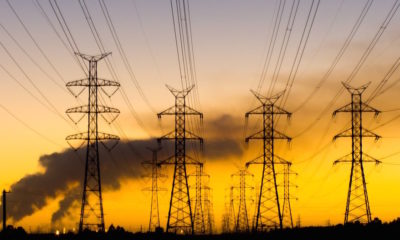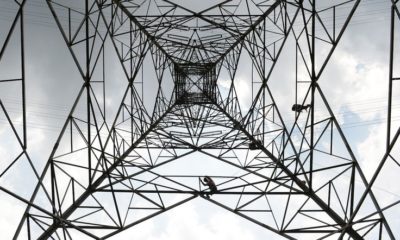- Meters: Electricity Consumers to Pay through Service Charge
Contrary to the position of the Nigerian Electricity Regulatory Commission (NERC) that electricity consumers in the country would be provided meters free-of-charge by their distribution companies (Discos), power consumers would actually have to pay for such through a new window termed ‘metering service charge,’ Investors King yesterday learnt.
Checks revealed that Discos’ customers can either choose to pay upfront for meters to be installed at their premises by Disco-accredited MAPs, or accept an installation by the Discos with an agreement to pay for it through their electricity bills.
NERC recently stated that the responsibility of providing meters to consumers was still that of Discos. It also disclosed that under the MAPs scheme, consumers who choose to self-finance their meter acquisition would pay the MAPs N36,991.50 for single phase meters and N67, 055.85 for three phase meters respectively.
It has so far approved the MAPs accredited by Abuja; Ibadan; Ikeja and Jos Discos to commence operations.
However, it is not clear if the new meter service charges in the MAPs scheme are different from the fixed charge the NERC in 2015 abolished and striped Discos from collecting from consumers.
Efforts to reach the General Manager, Public Affairs, Dr. Usman Arabi, and Head of Media, Mr. Sam Ekeh, of the NERC for clarification on the content of the regulation proved abortive as none of them responded to calls and text messages as at the time of filing this report.
NERC had also stated that the main objective of the MAPs would be to encourage the development of independent and competitive meter services in the power market, eliminate estimated billing, attract private investment in metering services, close the huge metering gap, and then improve the revenue generation profile of the sector.
According to it, the Discos’ metering gap as at December 2017 was 4,740,275, which it said could significantly increase upon the conclusion of a customer enumeration exercise.
Based on MAPs regulation, all Discos are expected to engage the services of MAPs towards meeting their metering targets.
It added that 30 per cent of the contracted meters to be installed by the MAPs would be locally sourced.
Also, consumers who do not have meters yet shall provide access for the provision of meters for their premises by MAPs, failure for which would result in a denial of electricity service by the Discos.
The document further said: “The distribution licensees shall include a metering service charge as a clear item on the billing of its customers provided with meters under an MSA (meter service agreement) with MAPs and shall be separate from the energy charge. The metering service charge shall be based on the outcome of the procurement process for the MAP and subject to the approval of the commission.”
It said that when this is the case, the Discos shall have rights to use data derived from customer meters for monitoring, billing planning and any other related activities, as well as to query data from the meters for audit purposes.
Further, the regulation explained that: “The metering service charge paid by all customers shall be ring-fenced in a dedicated account for the purpose of timely payment to MAPs,” adding that the MAPs shall retain the right to be paid in full the aggregated metering service charge paid by customers during the billing cycle.
Dwelling on obligations of parties under the scheme, the regulation stated that: “Upon the installation of a meter by a MAP, the customer has no obligation to pay for metering service charge through the distribution licensee at the time of payment for energy unless financed upfront in full by the customer.
“The payment for metering service charge by the customer to the MAP shall cease upon full amortisation of the meter asset over its technical life assumed in the procurement process for the MAP.”
According to it, where a customer fails to pay for metering service charge in any given month or months, the cumulative metering service charge shall be deducted upon the subsequent payment.
Equally, where a customer elects to pay for a meter asset upfront under the regulation, such a customer shall not be liable for the payment of metering service charge through the Discos.
“The amount payable to the MAP by a customer electing to pay upfront shall be the efficient cost of the meter asset and its installation cost as determined by the procurement process for the MAP conducted by the distribution licensee,” it added.
As for the obligations of the MAPs and Discos in the arrangement, it stated that after initial installations of meters, the MAPs shall repair or replace them within two working days of being notified they are faulty.
“Where a MAP fails to repair or replace a meter within two working days of a report by the customer or distribution licensee, the customer shall not be liable for the payment of metering service charge for the billing period unless such delays were as a result of inaccessibility to the customer’s premises.
“In the event of a prolonged delay in repairing or replacing a defective meter asset, the distribution licensee and MAP shall agree on an appropriate compensation to the distribution licensee for loss of revenue.
“The MAP shall install the meter at the premises of the customer within 10 working days of the receipt of full payment by the customer. The authorisation by the distribution licensee to pay for the meter shall only be issued after certifying the readiness of the premises for a safe and secure installation of the meter asset,” according to the regulation.
The regulation also provides that the cost structure of metering service charge shall cover the cost of providing the meter asset and the ongoing costs of operating and maintaining them, and would be transparent in the billing processes.

 Billionaire Watch3 weeks ago
Billionaire Watch3 weeks ago
 Startups4 weeks ago
Startups4 weeks ago
 News4 weeks ago
News4 weeks ago
 News4 weeks ago
News4 weeks ago
 Bitcoin4 weeks ago
Bitcoin4 weeks ago
 Naira4 weeks ago
Naira4 weeks ago
 Forex3 weeks ago
Forex3 weeks ago
 Treasury Bills4 weeks ago
Treasury Bills4 weeks ago























